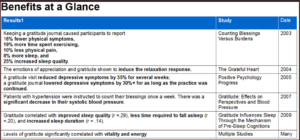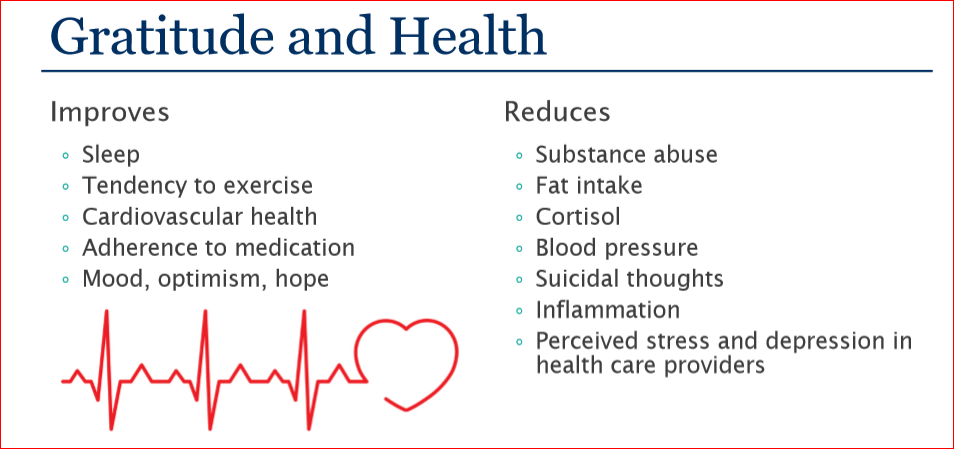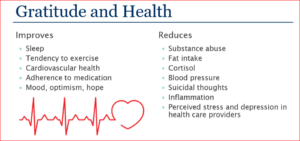- Gratitude is more than “feel good.” The is a science behind what happens to your body when you engage in feeling, expressing and being grateful. Take a moment to look about what gratitude can do for your physical health, well-being and mood. A daily practice of gratitude has long lasting implications for happiness, longevity, and health. Gratitude is an example of a positive state of mind that can reduce risk of depression. In terms of measurable health benefits, researchers maintain that gratitude fosters optimism, which has been shown to positively influence the immune system.
- Gratefulness increases happiness and life satisfaction.
- Grateful people are more resilient to stress.
- Grateful people get along better with others.
- Grateful people are less depressed.
- Grateful people achieve more.
- Grateful people are more helpful and generous.

Write Down What You’re Grateful For
Scientists performed an experiment in which they asked one group of people to write down the things that they were grateful for on a weekly basis, while the other group recorded hassles or neutral life events. The folks who kept gratitude journals exercised more regularly, reported fewer physical symptoms, felt better about their lives as a whole, and were generally more optimistic about the upcoming week—compared to their negatively focused counterparts.
Start Today: At the end of each day, write down one great thing that happened. Use a notebook or keep a Digital Log.
Even a Single Act of Kindness Can Go a Long Way
Scientists studying positive psychology found that a one-time act of thoughtful gratitude produced an immediate 10% increase in happiness and 35% reduction in depressive symptoms. The happy effects disappeared within three to six months which shows that gratitude is an act to be repeated again and again.Links for resources:





